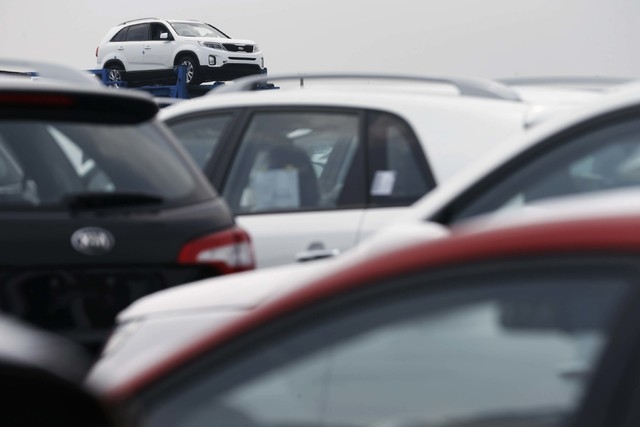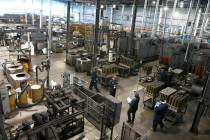Hyundai, Kia fined $100M for overstating mileage
WASHINGTON/DETROIT — Hyundai Motor Co and affiliate Kia Motors Corp will pay a $100 million penalty for selling cars with worse fuel economy than the companies had claimed in what U.S. authorities termed the largest such accord to date.
Monday’s settlement with the U.S. Environmental Protection Agency, the U.S. Department of Justice and the California Air Resources Board resolves an investigation of the South Korean carmakers’ 2012 overstatement of fuel economy ratings.
“This will send an important message to automakers around the world that they must comply with the law,” said Attorney General Eric Holder.
Under the accord, which involved the sale of 1.2 million cars and SUVs, the companies will also spend around $50 million to prevent future violations and forfeit emissions credits estimated to be worth over $200 million.
The greenhouse gas emissions that the forfeited credits would have allowed are equal to the emissions from powering more than 433,000 homes for a year, the EPA said.
“Businesses that play by the rules shouldn’t have to compete with those breaking the law,” said EPA Administrator Gina McCarthy.
McCarthy said Hyundai and Kia had committed the most egregious violation of the reporting standards. She declined to say whether other violators may also be fined.
“Every automaker will be looking carefully at its current testing procedure to avoid a similar penalty in the future,” said Karl Brauer, senior analyst at Kelley Blue Book’s KBB.com, who noted “frustration in the gray area between automakers’ stated mpg numbers and the real-world results experienced by car owners.”
In November 2012, Hyundai and Kia conceded they overstated fuel economy by at least a mile per gallon on vehicles after the EPA found errors for 13 Hyundai and Kia models from the 2011 to 2013 model years. Hyundai said at the time that the affected cars’ reported fuel economy would be adjusted by 1 to 2 miles per gallon.
Hyundai and Kia both increased their shares of the U.S. new-vehicle market in the past decade, particularly during the economic downturn of 2008 to 2010 when consumers craved fuel-efficient and relatively low-priced vehicles.
“We are pleased to put this behind us,” said Hyundai U.S. chief David Zuchowski. The company added that it believes its process for testing vehicle fuel economy meets U.S. guidelines, and the overstatement was a result of a data processing error.
Kia said its priority “remains making things right for our customers through our fair and transparent reimbursement program.”
In December, both automakers agreed to pay a total of $395 million to settle lawsuits filed by owners of cars affected by the overstatements. Hyundai’s share of that was $210 million.
Hyundai’s U.S. chief at the time, John Krafcik, stepped down after his contract expired at the end of 2013.
The Justice Department did not comment on whether any Hyundai or Kia employees would be criminally charged.




























